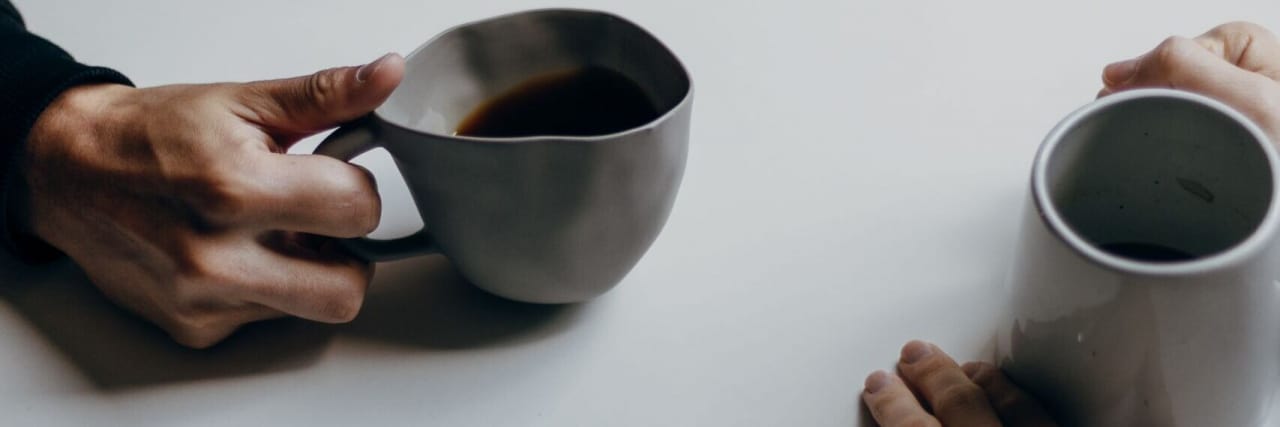There is no sugar coating it: I have bipolar disorder. The chances are pretty high that if you know me, you were not aware of this until now; the reason for that is because I hid it from you.
• What is Bipolar disorder?
You see, when I was 10 years old I began to display symptoms of depression and anxiety. At 15, I reacted poorly to an antidepressant and this resulted in my first admission to a psychiatric hospital and suspicions of a mood disorder began to circulate. When I left home to attend university at 18, my mental health spiraled once more and those suspicions were confirmed: I was formally diagnosed with bipolar disorder.
On the rare occasion I tell someone that I have bipolar disorder, I am usually met with the same statement: “You don’t seem bipolar.” And on a purely stereotypical basis, they are right. I am a university student, a dedicated volunteer, a passionate advocate, and I hold a full time job. But I have another full time job: hiding my diagnosis.
The decision to cover up my mental illness is not rooted in shame or embarrassment; it is the price I pay to keep my right to display normal human emotions. When those around me learned of my bipolar diagnosis, there was a shift in how they viewed me. Suddenly, a bad day, an argument or a moment of tears was dismissed as being an “episode.” A case of the giggles or discovering a new hobby was seen as just being manic. As you can imagine, this was extremely invalidating.
Before we continue, let’s address some common misconceptions about bipolar disorder:
1. An episode is not a minute-to-minute experience.
When you think bipolar, you might think of a mood swing you can see happen right before your eyes, and for this reason I prefer the term mood cycling. The chances are slim you have actually witnessed someone with bipolar disorder switch from depression to mania. Our episodes actually last for weeks to months, and the transition between them is a gradual process.
2. I always have bipolar disorder, but I am not always in a manic or depressive episode.
In fact, I am usually stable. Someone with bipolar disorder can go months or even years without being manic or depressed. I typically have three episodes a year each lasting roughly a month.
3. Those of us with bipolar disorder can feel a “normal” range of emotion.
We are not stuck on each end of the emotional spectrum.
Being treated differently after opening up about my bipolar diagnosis changed how I speak about my mental health, and I share this experience with many others with highly stigmatized mental health conditions. Many of the comments we receive are not of malicious intent, but instead come from a lack of knowledge on the disorder. My decision to hide my diagnosis rose from what I saw in my interactions with others. Drawing a boundary with someone who was unaware that I am bipolar was a simple process, but when I addressed a concern with someone that knew about my illness, I was dismissed as having an episode and not taken seriously. Naturally, the decision to conceal my diagnosis was a no-brainer…until it took over my life.
What they don’t tell you about hiding your bipolar disorder is how much time and energy it consumes. I wasn’t exaggerating when I said that it is like a second full time job. Those around me who would never guess I have bipolar disorder only got to see a fraction of me; they were shielded from the raw realities of the diagnosis. I blame the side effects of my psychiatric medication cocktail on a poor night’s sleep. My swollen eyes were not from crying, it’s just allergies. I sold my seemingly spontaneous three hour walks around my town as a passion for fitness, when in reality I was draining myself of the energy I could use to hurt myself when at my lowest. Piece by piece I sculpted a perfect illusion all to avoid the social repercussions of my truth. But upon closer inspection, you can see faults in my facade: multiple withdrawals on my transcript as a result of psychiatric hospitalizations, the six prescription bottles that sit on my nightstand, the crisis hotline saved to my phone: all indications of a battle fought behind closed doors.
It was the realization that I am not alone in the battle against misinformation about bipolar disorder that prompted me to open up about my struggles. As a fierce fighter of mental health stigma, it became clear to me that for us to break the pattern of invalidation, we need to bust those myths and re-educate in a transparent manner. I hope that by sharing my story and opening a dialogue for education on bipolar disorder, I can help create a future where we are no longer asked if we are taking our medication simply because we displayed a rational human emotion.
Our diagnosis is a small part of our identity, but it has massive impacts on almost all aspects of our lives. It may be a controversial statement, but I do not view my bipolar diagnosis as a superpower. That being said, I also do not view it as a death sentence, and it is certainly not a factor in every emotion and thought I have. I am a loyal friend, a published poet, a passionate reptile conservationist, and a person with bipolar disorder. Let’s change how we view those living with bipolar disorder so we can stop hiding and start learning.
Image via Priscilla Du Preez on Unsplash

